【新唐人2012年3月10日訊】3月8號,中共人大常委會副委員長王兆國在人大會作關於《刑訴法》修正草案的說明,最新的修正草案規定,「涉嫌危害國家安全」和「恐怖活動犯罪」被拘留後,如有礙偵查可以不通知家屬。分析指出,這樣更方便中共以這類罪名抓捕異已,讓其「合法」的被「失蹤」。
《刑訴法》修正草案中被非議的最大焦點是,公安機關拘留、逮捕嫌疑人後,因有礙偵查可以不通知家屬,換句話說,如有礙偵查,當局可以不通知家屬而「秘密拘捕」嫌疑人。同時,這個情況限定於「危害國家安全犯罪」和「恐怖活動犯罪」這兩點。
「東南大學」法學院教授張讚寧律師指出,這樣一來,當局可以任意以這類罪名抓捕異己人士,讓他們「合法」的被「失蹤」。
張讚寧:「現在往往在司法實踐中,當時沒有任何危害國家安全的行為,只不過是有一些言論,或在你自己組織的政黨,那麼它就會以這個危害國家安全罪這種罪名來,甚至用顛覆國家安全罪,往往就是在當事人沒有任何行為的情況下,只是有這種思想,這種言論就可能以這種罪名抓捕。」
去年8月中共人大常委會第一次審議草案對「拘留、逮捕、指定居所、監視居住有礙偵查可以不通知家屬」的規定曾遭到公眾強烈批評,認為當局試圖將「強迫失蹤」合法化。
權力運動胡軍:「這本身就是流氓團夥制定的惡法,奴役中國的百姓, 我們立法的部門都是非法的部門,它立出的東西有甚麼意義呢? 國家的存在是為了保護每一個人的權益,而不是任意剝奪他們的權益,那麼任意剝奪他們的權益的國家我們要它做甚麼?只有一種方式叫它下臺。」
張讚寧指出,這個規定沒有任何衡定標準,嚴重侵犯人權。
張讚寧:「本來危害國家安全犯罪這個罪名就很不確定,甚麼情況下才叫危害國家安全罪?跟中央的觀點不一致是不是就認為(危害)國家?本來就存在著一個很不確定的,解說很不確定的一個..概念很模糊的情況下,現在又以通知家屬可能會妨礙偵查為理由可以不通知家屬,我認為嚴重侵犯了這個犯罪嫌疑人的人權,侵犯了家屬的有知情權。」
中共人大常委會法制工作委員會副主任郎勝當天下午就「刑事訴訟法修改」回答記者提問時聲稱:我們沒有「秘密拘捕」,法律也沒有這樣的規定。
張讚寧:「法律是沒有這個規定,但是在司法實踐中已經有很多這種情況,你像高智晟,就是經常被秘密失蹤,是不是逮捕?是逮捕當然我們國家有規定,必須要經過公安局決定,還必須有法院和檢察院決定公安局執行,現在往往在司法實踐中就有秘密失蹤的情況。」
張讚寧指出,如果上述條款得以通過,中國司法制度將更傾向於公安機關和檢察機關,人民權益更無保障,跟當局觀點不一致的人隨時有可能被「失蹤」。
根據人大議程安排,人大會將於3月14號對《刑訴法》修正草案進行表決。
《刑訴法》,又被稱為「小憲法」,是一部直接關係國民基本權利的刑事訴訟法律,決定著公民的生命、財產、自由等基本權利。
-----------------------
CCP's Troubling Amendment to Criminal Procedure Law
On March 8, Wang Zhaoguo, vice chairman of the national
congress Standing Committee accounted for the draft amendment to the Criminal Procedure Law.
The draft stipulates, criminals accused of "endangering
national security" and "terrorism" can be detained without notifying their families if this “obstructs the investigation.”
Analysts think this will allow the Chinese Communist Party'
(CCP) regime to capture dissidents more easily.
And the “forced disappearance”
would thus be “legalized.”
The debate focuses on the clause that allows police to
secretly detain suspects without notifying their families,
if it “obstructs the investigation”. In other words,
if the suspects were presumed to “obstruct the investigation,”
the authorities can hold suspects in secret locations
without notifying their families.
The stipulation applies to cases of terrorism
or endangering national security.
Lawyer Zanning Zhang says that this helps the regime
to arbitrarily capture dissidents with such accusations.
The clause makes it “legal”
to have dissidents “disappear.”
Zanning Zhang: "Now in judicial practice, the parties are
often arrested only for remarks, even without criminal acts that endanger state security.
The same case is with those who form a political party.
They are charged with a crime of subverting state power.
Only for thinking and remarks, the parties can be captured
with such criminal charges."
In August 2011, CCP』s first draft allowed “detention, arrest,
assigned residence and residential surveillance without notifying the family in case of impeding the investigation.”
The clause aroused severe public censure, which deemed
the regime as attempting to legalize "forced disappearance."
Hu Jun (Sponsor of Human Rights Campaign in China):
"It's itself an evil law made by gang of hooligans, to enslave the Chinese people.
The legislative organs in China are all illegal,
what's the significance of its legislation then?
A government should exist to protect every citizen's rights
and interests, rather than arbitrarily deprive them of those.
Do we need a regime that exists to arbitrarily deprive
its citizens from their rights and interests?
There's only one way out –to topple them down."
Zanning Zhang notes that there are no set criteria to judge
this draft clause, thus it is a serious human rights violation.
Zanning Zhang: "The accusation of endangering national
security is highly speculative in itself.
Under what circumstances is a crime determined
as endangering the state security?
Can a thought be found guilty only because it is
inconsistent with that of the (CCP's) Central Committee?
The explanation of the stipulation is very uncertain,
the concept is obviously vague.
Now it uses the excuse of obstructing the investigation
to avoid notifying the families.
I believe this is a serious violation of the suspect's
human rights, a violation of the families' right to know."
Lang Sheng, deputy director of CCP' Legislative Affairs
Commission replied to the reporters' questions.
“We have no ‘secret captures.' and there is no
such law stipulations in China,” Lang said.
Zanning Zhang: "There are no such law clauses, indeed,
but we see its frequent occurrence in the judicial practice.
For example, Gao Zhisheng, who often disappears
secretly. Isn't this an arrest?
There is law of arrest in China, according to which
the arrest must be approved by the Public Security Bureau.
Then it's execution must be authorized
by the court and the prosecutor.
However the secret disappearance is very common
in the judicial practice."
Zanning Zhang warns if the draft stipulation gets approved,
China's judicial system will become more imbalanced.
It will lean more to organs of public security and procurators,
than to security of the civilians' rights and interests.
Anyone can “disappear” at any time only for his
inconsistence with the regime's views, says Zhang.
The draft amendment to the Criminal Procedure Law
is scheduled to be voted on March 14.
The Criminal Procedure Law is also known
as the "mini-constitution."
The legislation stipulates the basic civil rights,
including citizens' life, property, freedom, etc.
看下一集

【禁聞】美國調更多軍力到亞太
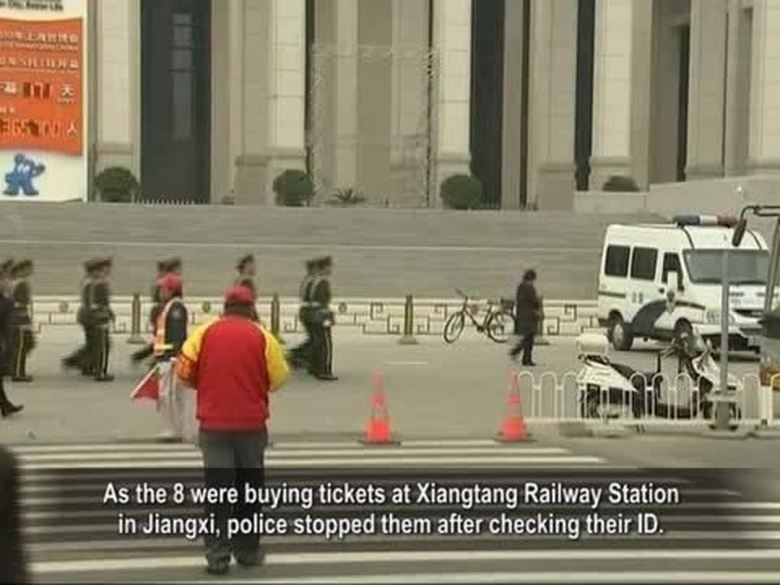
【禁聞】阻止訪民進京 實名制露真容
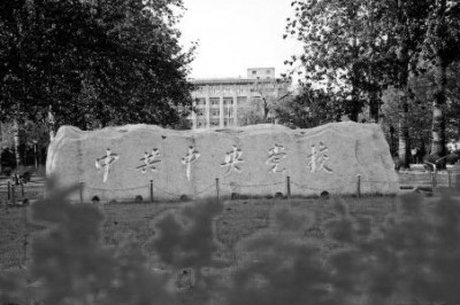
【禁聞】陞官須經黨校 專家:共產奴化怪胎
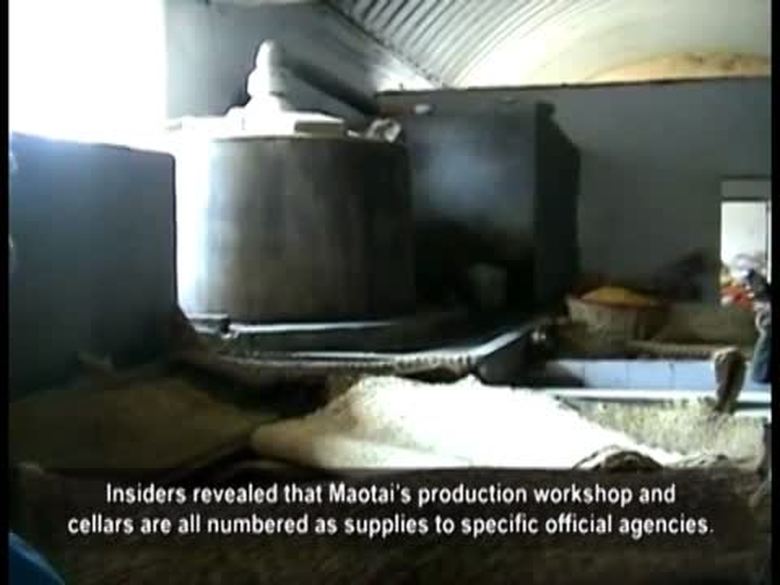
【禁聞】茅臺曝國家機密 編號有玄機
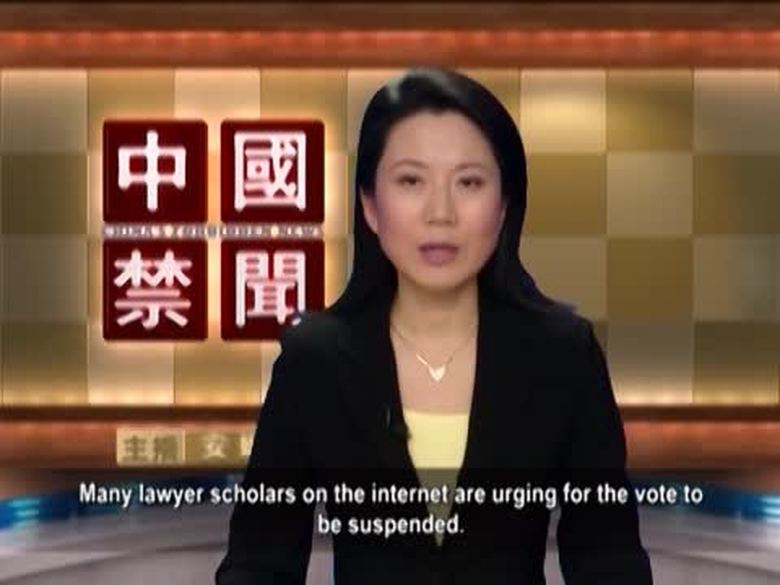
【禁聞】大陸法律界指人大修法程序違法
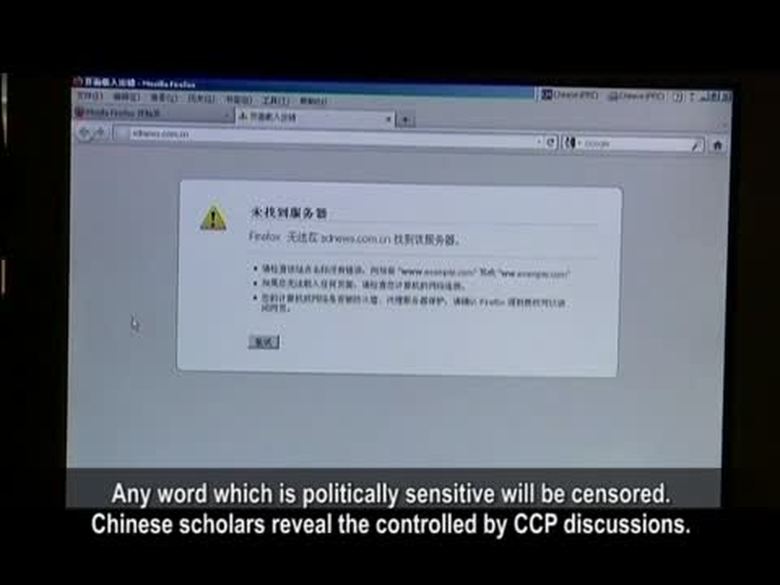
【禁聞】美國學者研究中國微博敏感詞
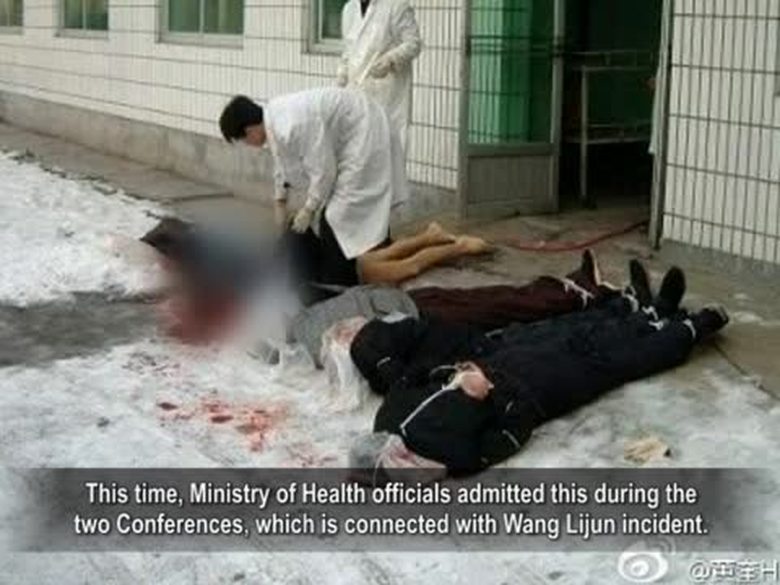
【禁聞】衛生部消毒?中國器官移植來源成疑
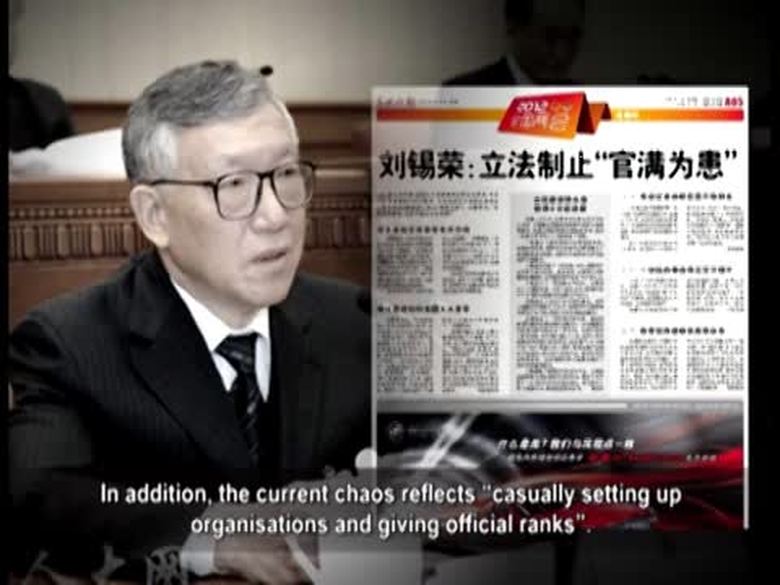
【禁聞】中共官滿為患 代表倡立法管控

【禁聞】中共竊西方最尖端戰機機密
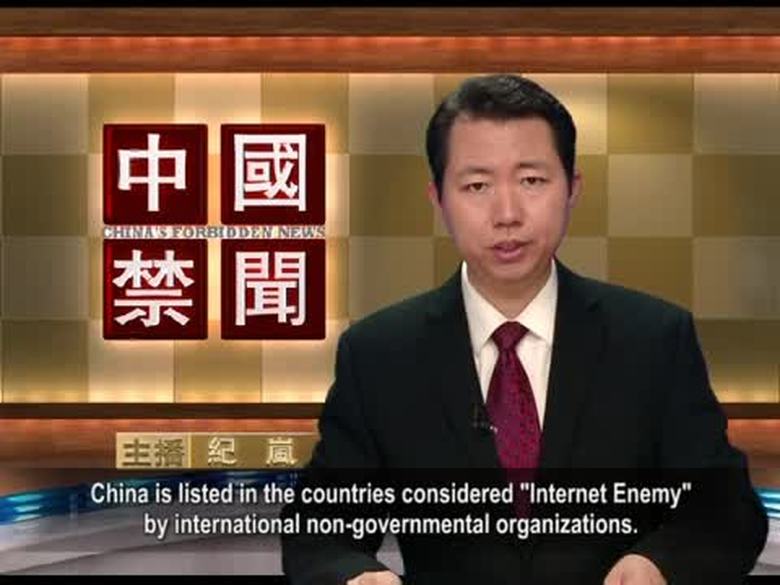
【禁聞】中國被列入「互聯網之敵」名單
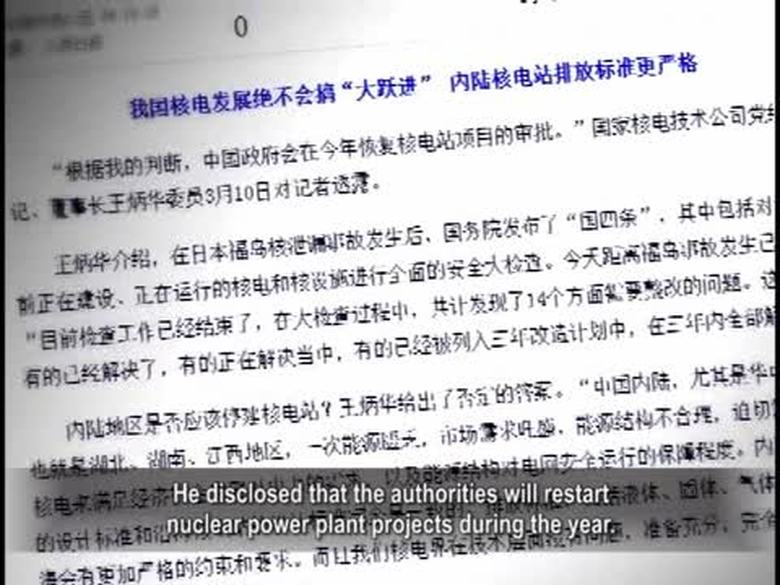
【禁聞】福島核洩漏週年 大陸擬續推核電
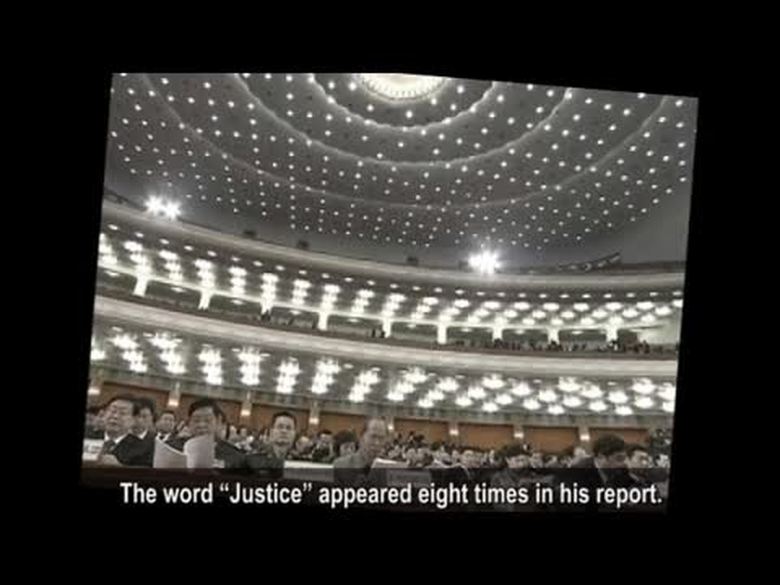
【禁聞】專家評:維穩向前進 司法向後退
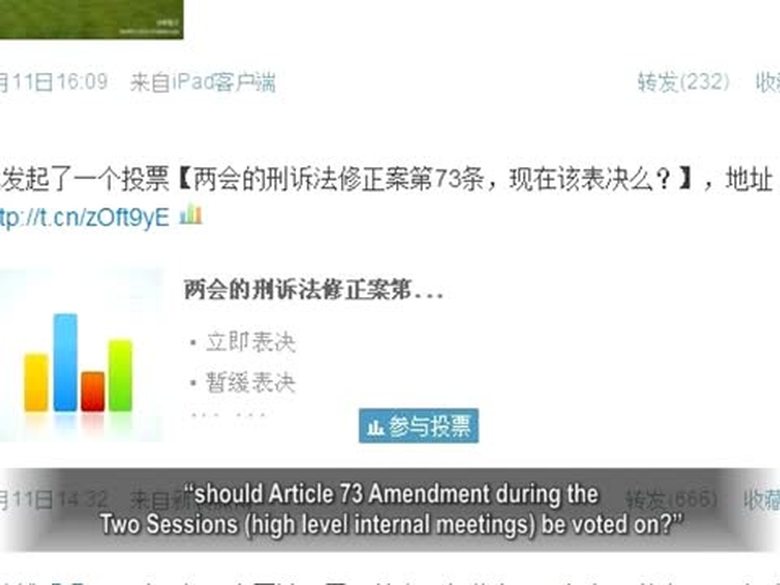
【禁聞】刑訴法73條 黑社會要合法化?
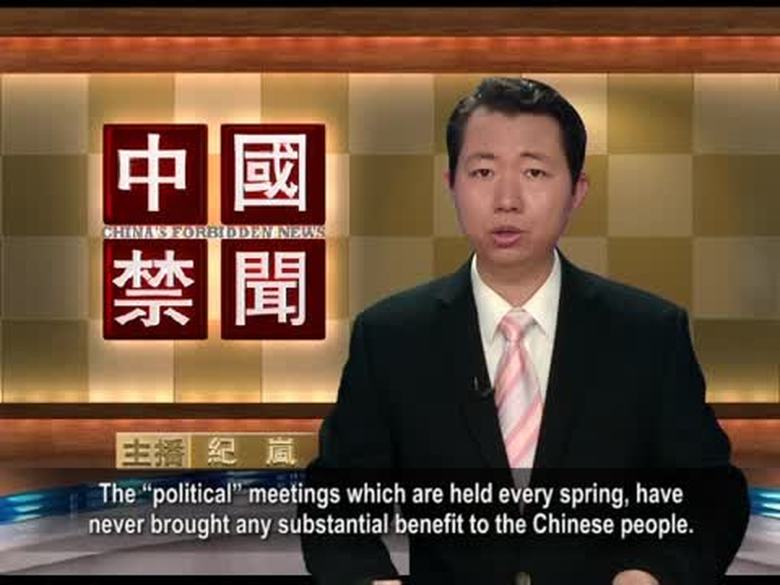
【禁聞】作家:兩會是世界上最成功的失敗
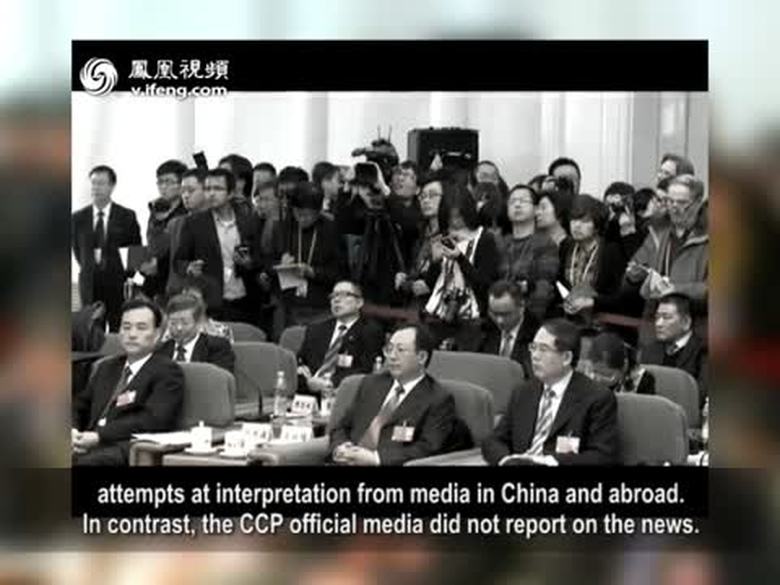
【禁聞】薄自說自話 官媒封殺 中央不認可?
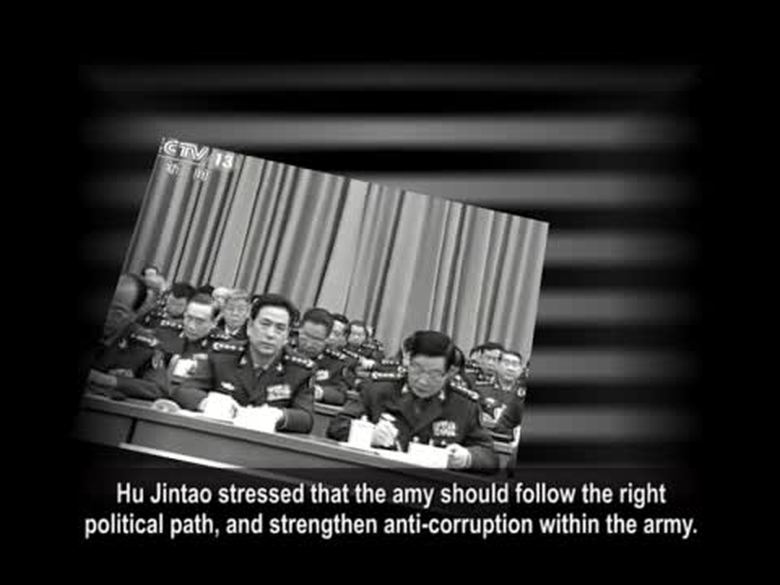
【禁聞】胡錦濤強調以黨領軍 貪腐集團角力








